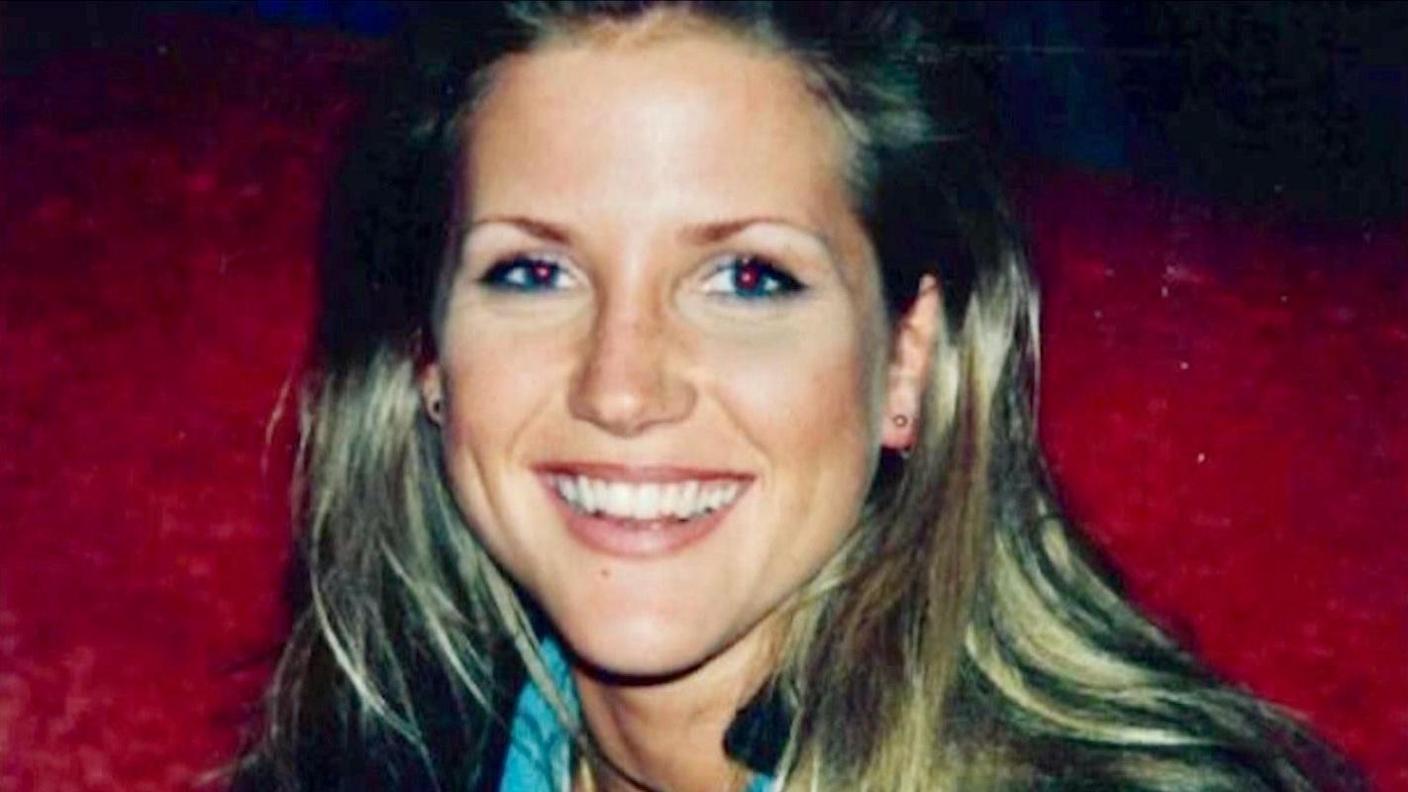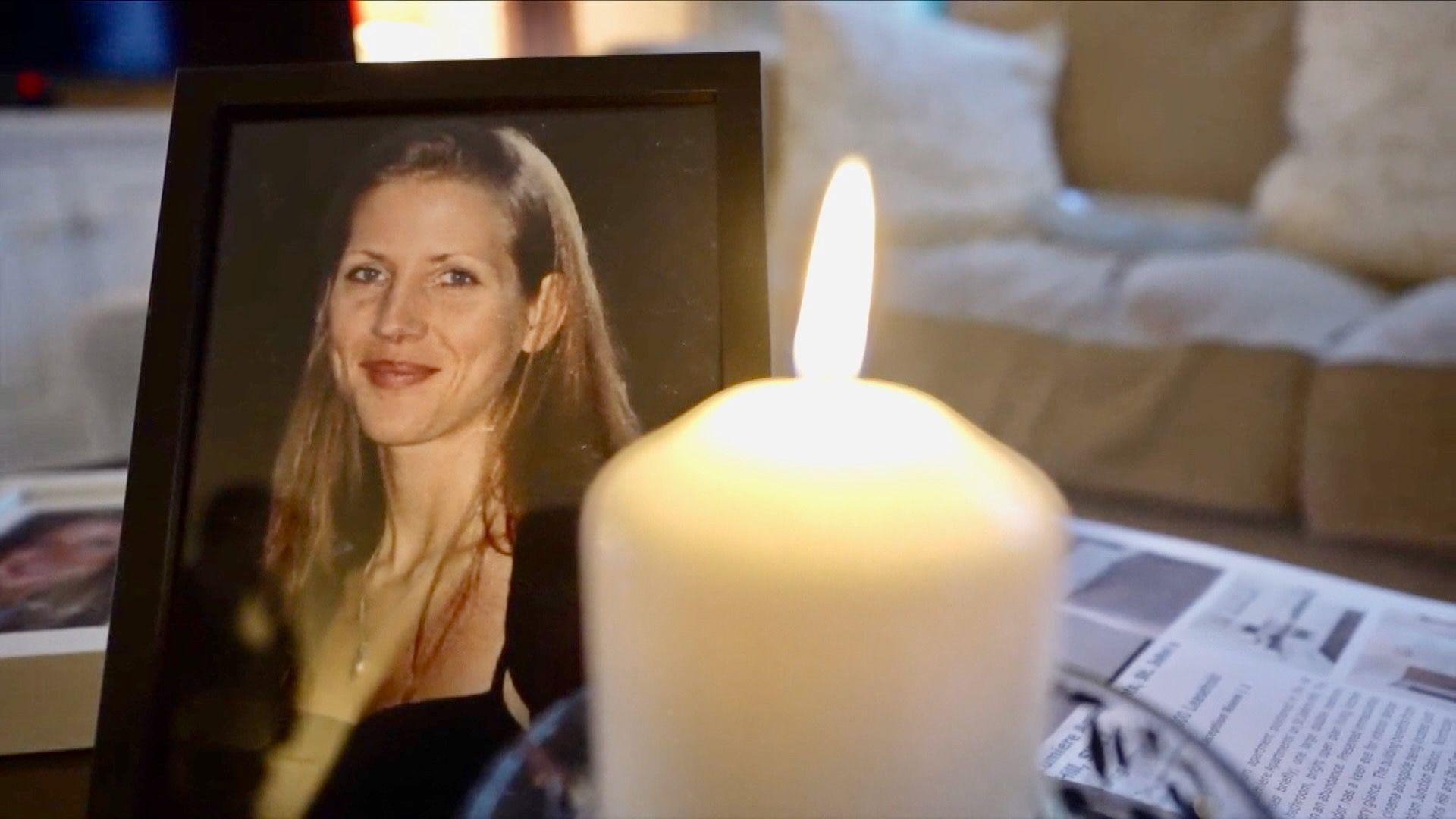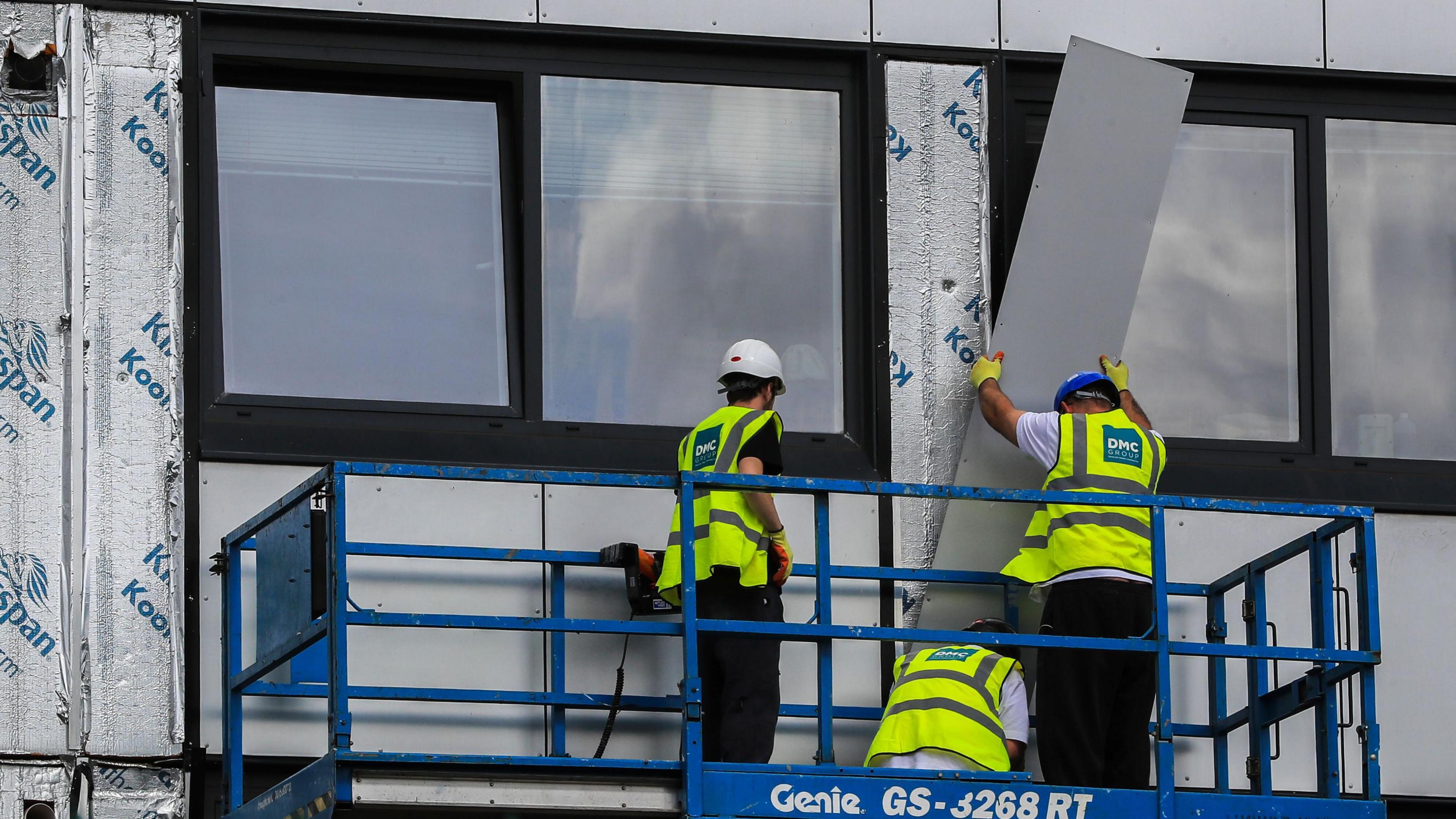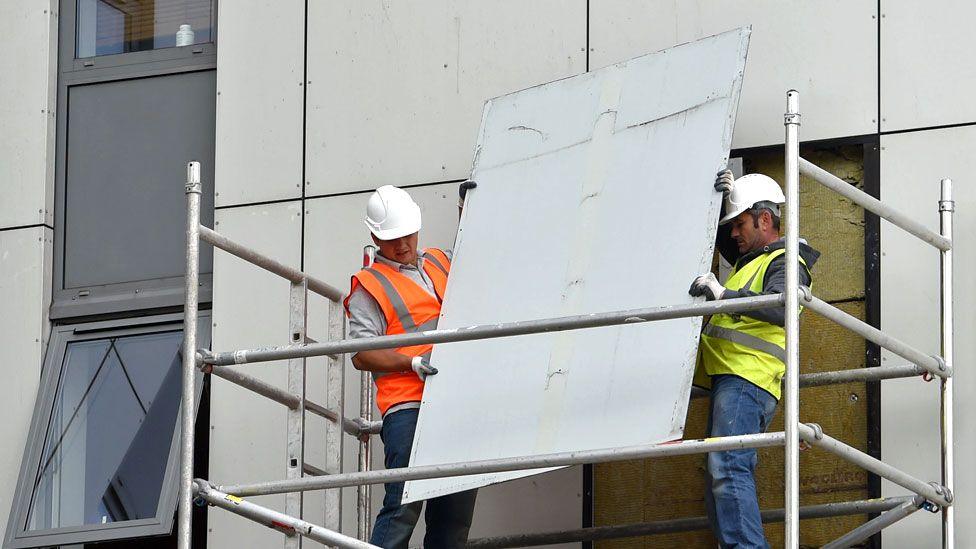'Anger is replacing grief' says mum after daughter died fighting for cladding justice

- Published
Amanda Walker felt trapped in a flat she couldn't sell because of its flammable cladding.
When it turned out that no government scheme would cover the costs of removing the dangerous material from her newly built flat in south London, she started campaigning.
She spent four years trying to get justice for herself, and for millions caught up in the scandal exposed by the Grenfell Tower fire.
Then, at the age of 51, she was found dead in her one-bedroom apartment by her mother and sister. An inquest recently recorded a verdict of death by misadventure.
"She would often phone me late at night when she just couldn't deal with it any more," her mother Glenda recalls.
"I wish she could phone me now."

Amanda's one-bedroom flat, which she bought for £500,000 in 2018, soon became a nightmare
Half a year earlier, in July 2023, Amanda had addressed peers in the House of Lords investigating the impact of the cladding problem on flat owners.
"It's devastating. It's just a quagmire. It's just chaos," she told them. "It's so unjust. I had done nothing wrong and it's destroyed my life already."
The video of Amanda's address to the Lords is now treasured by her mother, who's speaking for the first time since the inquest's verdict.
Glenda thinks Amanda, an office manager at a hedge fund in the City of London, started drinking to deal with the anxiety of having to face unaffordable bills to fix the cladding, running into the tens of thousands.
"I'm not ashamed for her for that because it was her way of coping. She used the term 'seeking oblivion'."
Amanda wrote countless letters to MPs, local authorities and other responsible bodies - but "always got the statutory response", her mother continues.
"There are still over a million people in this situation and [MPs and civil servants] would write these platitudinous letters saying 'oh we're doing this, we're doing that'."
She doesn't just see those as unhelpful - but as evidence that nobody really understood the scale of the problem and how seriously it was affecting people.
It felt like there was a black chasm ahead, Amanda Walker told a House of Lords briefing
The government did eventually launch a scheme - the Building Safety Fund - to pay to remove the type of dangerous cladding that is on the outside of Amanda's flat.
She was hoping that changes enshrined in a separate landmark law called the Building Safety Act - brought in after the Grenfell tragedy - would help her correct internal fire safety defects, like insufficient fire stopping between flats.
But they didn't. There were significant exceptions to who qualified.
Since some of the other flat owners in her development had bought a share of the building's freehold, she became what's known as a "non-qualifying" leaseholder - meaning she still faced huge uncapped bills to contribute towards the repair costs.
Several proposed amendments to the Building Safety Act that would've protected people in Amanda's position were voted down in the last parliament.
What always scared Amanda was the threat of having to pay unpayable sums. She described it as a "sword of Damocles over my head for three long years". For a brief moment there was hope. "And then they vote against us, on everything," she told peers.

Amanda, pictured here with her brother and parents, became consumed by anxiety about her situation
Amanda's drinking increased and her family sought medical help. She agreed to be hospitalised. GPs and psychiatrists were clear in their reports: Amanda's drinking, stress and anxiety were down to the impact of the cladding crisis on her mental state. She was prescribed anti-depressants.
She continued campaigning with her mother, but things began to spiral downhill.
Glenda believes the anti-depressants she was given were not benefiting her. "I think she was over-medicated and her head was all over the place. She wasn't depressed, she kept saying: 'I am not depressed, I'm angry.'"
Amanda's partner split up with her as cladding campaigning consumed more and more of her life. Her mother and sister would make trips to see her to try to offer support.
If you've been affected by the issues in this story, help and support is available via the BBC Action Line

Glenda says Amanda had entirely lost faith in the government and believes medication was not helping her
Things came to a head one day this January.
Glenda was growing ever-more nervous about her daughter, and knew she needed urgent medical attention.
She says she'd written a "fairly assertive" letter to a hospital where her daughter had been previously treated, warning her condition was getting serious.
Travelling to London through the rain, she found herself "phoning and phoning and phoning" the hospital to try to get doctors to intervene again.
The following day Amanda was found dead.
Asked if she'd ever thought that her daughter might kill herself, Glenda says: "Manda had talked about it. She'd talked about it."
She says she can understand her daughter's state of mind that weekend.
"Yeah, I've seen it so often. I'm different from her and she felt despair… She wanted justice and she felt it was just awful. I think she lost faith in the government completely."

Amanda's parents, who still haven't been able to sell the flat, hope their daughter's campaigning will make life easier for people stuck in buildings with defective cladding
The government says that work is already underway through the Remediation Acceleration Plan "to make sure those responsible for the cladding crisis pay their fair share".
It says it is "continuing to look at all options to ensure residents no longer have to deal with the nightmare of living in unsafe buildings".
Amanda's flat has now passed to her parents to deal with.
Its exterior cladding has now been replaced and they are trying to sell - but they still haven't been able to, due to structural fire issues inside the property.
Unless the Building Safety Act is amended by fresh legislation, Amanda's parents or any future purchaser will be liable for paying to fix those problems.
Amanda's mother hopes that speaking about her daughter's death has not been in vain, and that her story can be a catalyst.
"You go through grief… and perhaps the anger's getting in there a little bit now.
"For her sake, we'd love to think that she had caused some small change."
- Published2 December 2024

- Published4 November 2024

- Published27 May 2024
